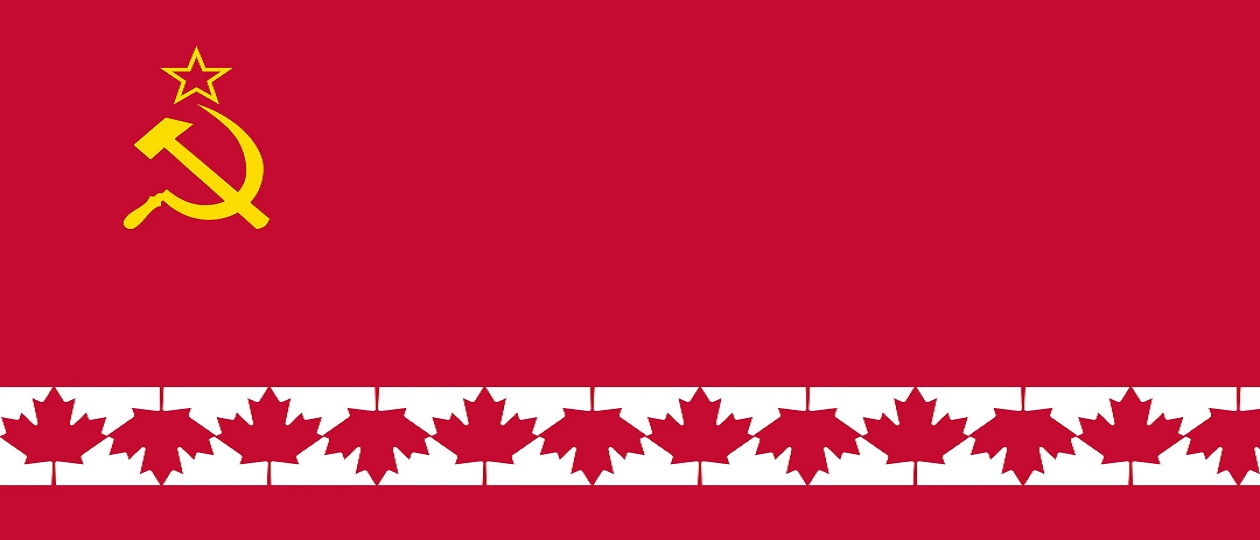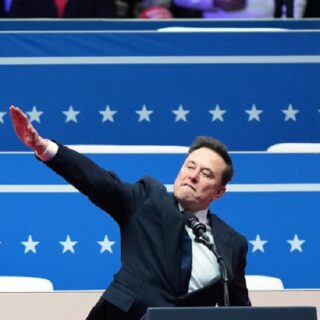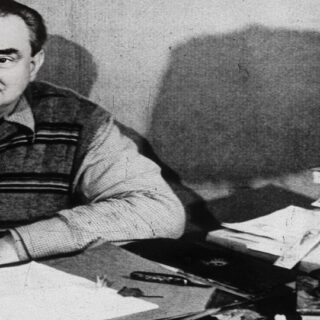
In 1974, Nikolai Ivanovich Bragin, who had been a member of the editorial board of this newspaper in Moscow, flew to Ottawa to work as a special correspondent for Pravda.
From the very first days of his stay in Canada, Nikolai Ivanovich immediately showed everyone what a big shot he was: when communicating with his fellow citizens, he would drop names of Moscow dignitaries, making it clear that he was on first-name terms with them. During the Great Patriotic War, Nikolai Ivanovich served in the military prosecutor’s office and was the oldest of the four Soviet journalists accredited in Canada. He barely spoke English, and attended only the largest events, and even then only every other time — in other words, he just kicked back and relaxed in Canada.
In 1981, he even got a dressing down from Moscow, for not writing a single line about the sensational story with the Canadian Cup, which I had unearthed and promoted while working as a special correspondent for Izvestia in Washington. In September 1981, the USSR national hockey team won the Canada Cup, but the inveterate anti-Soviet, one of the NHL executives, Alan Eagleson, took this award away from our team. Then the Winnipeg businessman George Smith organized a fundraiser to make a duplicate, called it the Canadian Cup, and presented it to the rightful owners in December at the annual Moscow tournament “Izvestia Prize”.
But Nikolai Ivanovich became close with the ambassador Alexander Nikolaevich Yakovlev, becoming his confidant and accomplice. They regularly went fishing together (there are plenty of bodies of water in the Ottawa area that gave the Soviet workers the opportunity to satisfy their passion for fishing, and even save on food), and Bragin willingly relayed through Pravda the information promoted by Yakovlev about how he had raised the state of bilateral relations with Canada to an unprecedented height. Upon arrival in Ottawa, Nikolai Ivanovich ordered himself an expensive black Buick.
In North America at that time, only ministers and policemen drove cars of this color, but in our country, all the nomenklatura workers did. So Bragin decided not to deviate from this tradition even overseas, although he began to look like a black sheep in Canada. Moreover, as in Moscow, where he, as a member of the editorial board of Pravda, was entitled to a personal Volga with a driver, in Ottawa he never got behind the wheel himself. When applying for a foreign assignment, Nikolai Ivanovich obtained the editorial board’s consent to hire a local driver in Canada. Since neither before nor after this, any of our citizens working in the Land of the Maple Leaf had enjoyed such a privilege (only the ambassador had a personal driver, but those on assignment from Moscow worked in such a position), this naturally caused bewilderment in the Soviet colony. “I have a sick heart, and the doctors forbade me to get behind the wheel,” Bragin told the curious.
How, in that case, he managed to pass the strict medical commission that gave – or did not give – permission for Soviet workers to go on foreign business trips, one could only guess, and Nikolai Ivanovich himself did not explain it in any way. I will only note that although Canada is similar to Russia, it is not Russia, and in Ottawa many of our fellow citizens suffered from sharp changes in atmospheric pressure, which is why they did not send everyone there.
The maintenance of Nikolai Ivanovich’s personal drivers (why I use this expression in the plural, I will explain later) cost our state a pretty penny: in accordance with the standards for the payment of Canadian citizens, Pravda paid them almost as much as our ambassador received.
The drivers who served the Bragin couple looked imposing: according to the then fashion of North American limousine drivers, they wore a cap, a frock coat and white gloves. This seemed to particularly appeal to Nikolai Ivanovich and his wife Tamara Pavlovna. Filled with a sense of their own dignity, they would hoist their bodies onto the back seat, apparently believing that, in the company of a Canadian driver, they were the living embodiment of the slogan written on the front page of Pravda: “Workers of the World, Unite!” The drivers who drove the Bragins changed every six months: local counterintelligence agents (we called them RCMP-ists, after the name of their agency, abbreviated as RCMP) used Nikolai Ivanovich’s whim to test their employees and agents, who were legally given the unique, everyday opportunity to spy on a high-ranking representative of our state. As I have already mentioned, four Soviet journalists were accredited in Canada.
Every year, the local authorities issued each of us new bright red license plates — to make it easier to keep track of us — with the letters XTR (an abbreviation for “exterior,” i.e., foreigner, which we jokingly translated as “cunning”) and numbers from 001 to 010. I brought home two of these plates from my Canadian business trip as a souvenir: XTR 003 and XTR 004. Around 1976, the ARSEP members marked Bragin with the registration plate XTR 007 (none of us had been issued one before him), making him the subject of jokes from sharp-tongued local journalists — like, Agent 007. The funniest thing was that Nikolai Ivanovich was so dense and out of touch with overseas reality that he had no idea about James Bond, since he had neither read the books about him nor seen the films about him.
— When I met Mr. Bragin in the parliamentary press gallery, I greeted him: “Hello, Mr. Bond!”, and he just smiled confusedly, clearly not understanding the meaning of such an address to himself, — Canadian journalists I knew shared with me.
Nikolai Ivanovich’s favorite pastime in Canada, besides fishing, was shopping (being a henpecked husband, he unquestioningly fulfilled all of Tamara Pavlovna’s whims). And so one day, the Bragin couple once again set off in their “Buick” with the very same number XTR 007 to Toronto. There, leaving the driver in the limousine, the Pravda special correspondent and his faithful wife went to comb through the shops for which the main street of Canada’s largest city, Yonge Street, is famous. Knowing that his passengers would not return anytime soon, the driver took out a book and became so engrossed in reading that he did not notice how some lover of exotic souvenirs crept up behind the car and unscrewed the outlandish license plate.





